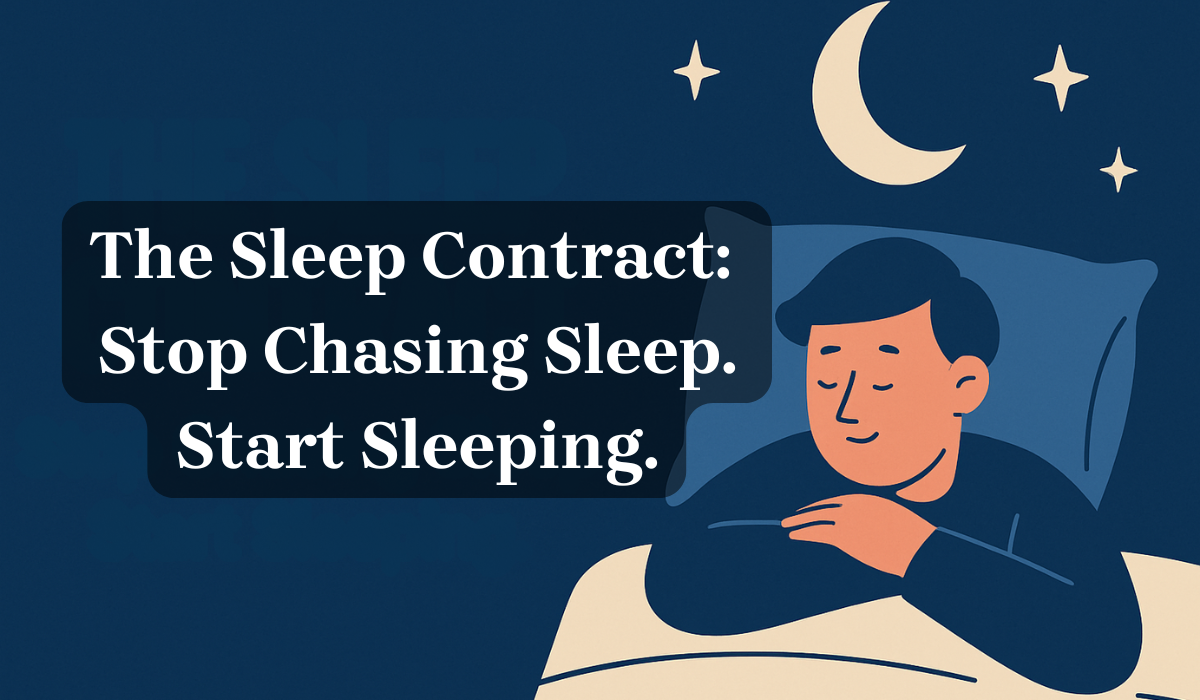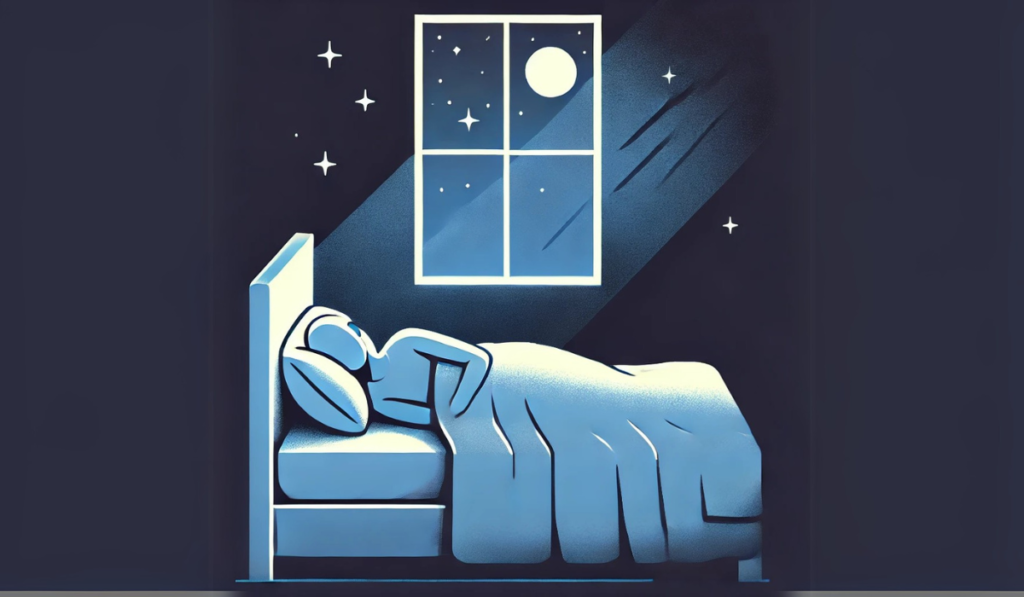The Sleep Contract: Stop Chasing Sleep. Start Sleeping.
Based on Dr. Spielman’s Sleep Restriction Therapy (CBT-I)
Why You Can’t Force Sleep
Trying harder to sleep makes it worse.
This is called Sleep Performance Anxiety.
You lie in bed, eyes shut, body still… mind racing.
Pressure builds. Sleep slips away.
Your brain treats the bed like a test.
You fail—night after night.
Enter: The Sleep Contract
This trick flips the script.
Dr. Arthur Spielman’s Sleep Restriction Therapy—a core part of CBT-I—rewires how you relate to sleep.
The idea? Stop forcing it. Start earning it.
Why It Works
Sleep isn’t a reward. It’s a biological rebound.
Restrict your time in bed → Build sleep drive → Fall asleep faster.
Here’s the brain science:
- Less time in bed = More pressure to sleep
- No pressure to perform = Less anxiety
- Deep sleep comes naturally
Sleep becomes automatic again. Not effortful.
How to Use the Sleep Contract
Step-by-Step:
- Track Your Sleep
Record when you actually sleep—not when you’re in bed. - Set a Sleep Window
Sleep only during your true average sleep time (e.g., 5.5 hrs).
Go to bed later, wake up at the same time every day. - Stick to the Schedule
Even if you feel tired earlier.
Consistency rebuilds your circadian rhythm. - Expand Gradually
When sleep improves, add 15–30 minutes per week.
Never jump to 8 hours right away.
The Sleep Contract Checklist
- Stay out of bed unless you’re sleeping
- No naps (they dilute your sleep pressure)
- Fixed wake time (yes, even on weekends)
- No phones or screens in bed
- Your bed = for sleep only, not worry
Consider Before You Try
Sleep restriction feels tough at first. That’s the point.
It’s safe, but not easy. Here’s what to know:
- Daytime Sleepiness
Expect grogginess for a few days. It fades fast. - Mental Health Conditions
If you have bipolar disorder or epilepsy, consult your doctor. - Requires Commitment
This only works if you follow it strictly. It’s called a contract for a reason.
The Science Behind It
Dr. Arthur Spielman developed this method in the 1980s.
Now, it’s a gold-standard tool in CBT-I (Cognitive Behavioral Therapy for Insomnia).
Clinical trials show it’s as effective as sleeping pills—without side effects.
Supporting Research:
- Spielman, A. J. et al. (1987). A behavioral perspective on insomnia treatment.
- Comparative effectiveness of cognitive behavioral therapy for insomnia
- NIH: Cognitive Behavioral Therapy for Insomnia (CBT-I)
Final Thought: Less Bed = More Sleep
When you stop pressuring your brain to sleep, it stops resisting.
The Sleep Contract gives you back control—through structure, not struggle.
Try it tonight.
Sleep is not a fight. It’s a surrender.



